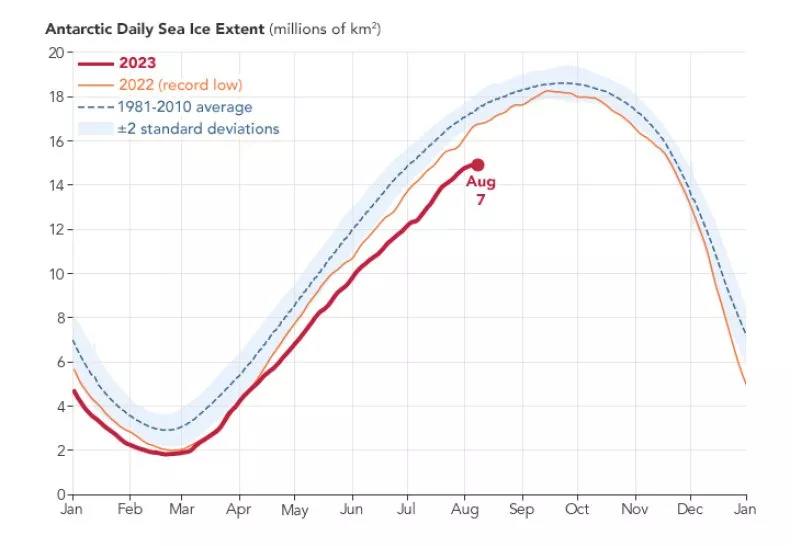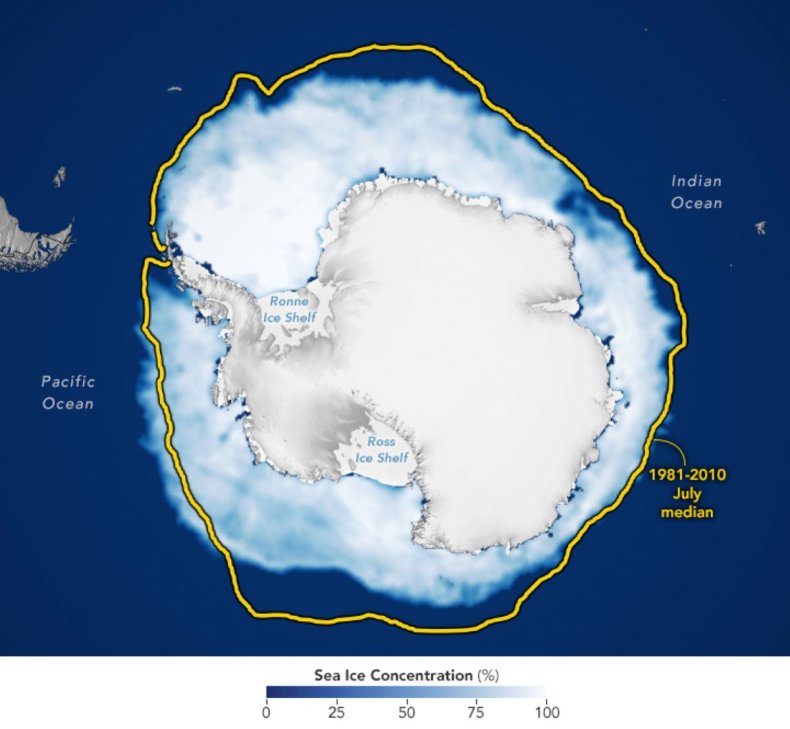Re: Antarctic Sea Ice 2022-2023
Here is a news video from 7 March 2023, a record minimum, 52,000 sq miles less than the previous record. Certainly the oceans won't rise due to this ice melt, that wont happen until the glaciers and grounded ice sheets break up, but what it is doing is putting millions of tons of water into the atmosphere.
This added 'humidity' coupled with the higher temperatures is what is causing debilitating heatwaves across the world, and no doubt is what is responsible for the severity of some flood events in recent years. Much is made in the media about heat, but heat in itself isn't life threatening. I have worked in 45 deg-C temps, it's not fun but the evaporation of your sweat cools you. With high humidity that sweat can't evaporate, the air is saturated, your body overheats and the water stops weeping from your pores.
Why the media doesn't report this is a mystery because drinking loads of water in such conditions is the last thing you should be doing. Water is a heat sink, you full your gut with water you end up with a hot water bottle inside yourself. At the moment heat records are being broken in India and Venezuela among other places, and that's in the northern hemispheres early Spring! In fact they had a heat wave in India last month, Winter. Strange days ahead...
https://weather.com/en-IN/india/videos/ ... ow-much-is
This added 'humidity' coupled with the higher temperatures is what is causing debilitating heatwaves across the world, and no doubt is what is responsible for the severity of some flood events in recent years. Much is made in the media about heat, but heat in itself isn't life threatening. I have worked in 45 deg-C temps, it's not fun but the evaporation of your sweat cools you. With high humidity that sweat can't evaporate, the air is saturated, your body overheats and the water stops weeping from your pores.
Why the media doesn't report this is a mystery because drinking loads of water in such conditions is the last thing you should be doing. Water is a heat sink, you full your gut with water you end up with a hot water bottle inside yourself. At the moment heat records are being broken in India and Venezuela among other places, and that's in the northern hemispheres early Spring! In fact they had a heat wave in India last month, Winter. Strange days ahead...
https://weather.com/en-IN/india/videos/ ... ow-much-is
 Yes, that's the facts. That and finding new ways to hide the fact the world's primary energy sources are getting harder and harder to get out of the ground. Mountain-top coal mining? Drilling a mile under the ocean? digging up tar to make oil? Fracking source rocks 10 million years before the oil would form naturally? I don't think the average person has a clue how much desperation is out there when it comes to maintaining the status Quo. In keeping the world's fleets of cars and trucks and trains and planes and ships and earthmovers and coal plants running.
Yes, that's the facts. That and finding new ways to hide the fact the world's primary energy sources are getting harder and harder to get out of the ground. Mountain-top coal mining? Drilling a mile under the ocean? digging up tar to make oil? Fracking source rocks 10 million years before the oil would form naturally? I don't think the average person has a clue how much desperation is out there when it comes to maintaining the status Quo. In keeping the world's fleets of cars and trucks and trains and planes and ships and earthmovers and coal plants running.
